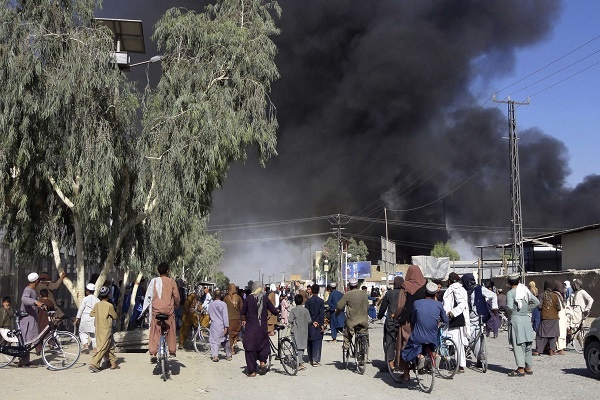
When Joe Biden appeared at the White House last month to explain his decision to withdraw US troops from Afghanistan, he insisted that a Taliban takeover of the country was not inevitable.
The Afghan army, Biden said, had 300,000 troops compared to 75,000 for the Taliban. And he claimed that the Afghan government troops were as “well-equipped as any army in the world”.
While few things in life are inevitable, a speedy Taliban takeover following America’s withdrawal looked highly possible even then.
Now, with the Taliban gaining control of provincial capitals at stunning speed, it looks extremely probable.
According to a US intelligence assessment, the Taliban may control Kabul within a month. The security situation is so dire that thousands of US troops have been flown in to evacuate American diplomats and civilians. The world’s strongest military power has been reduced to asking the Taliban not to kill its citizens as they flee from the country.
This moment is a low point in Biden’s presidency. He doesn’t bear responsibility for past failures in Afghanistan, but he is accountable for the haphazard, seemingly rushed nature of the US withdrawal.
Hawks in Congress have unsurprisingly leapt upon the chance to criticise Biden. They argue that a small, continuing US presence was a small price to pay to stop Afghanistan from falling into the hands of Islamic extremists.
“President Biden’s strategy has turned an imperfect but stable situation into a major embarrassment and a global emergency in a matter of weeks,” Republican Senate Minority Leader Mitch McConnell said. “President Biden is finding that the quickest way to end a war is to lose it.”
But even if you accept the arguments for leaving Afghanistan, it’s hard to believe the US departure could not have been handled better. Was it really necessary to time the withdrawal for the peak spring fighting season? Surely more planning could have been done to provide safe harbour for Afghans who worked alongside the US and its allies.